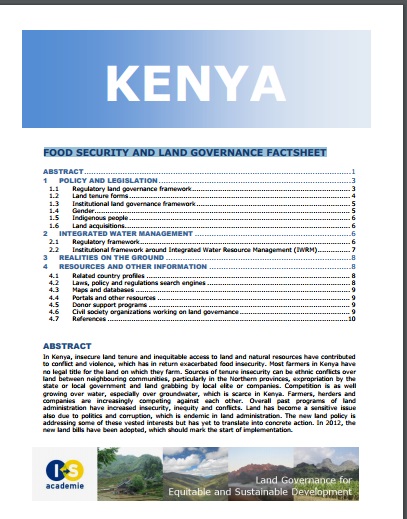Resource information
In Kenya, insecure land tenure and inequitable access to land and natural resources have contributed to conflict and violence, which has in return exacerbated food insecurity. Most farmers in Kenya have no legal title for the land on which they farm. Sources of tenure insecurity can be ethnic conflicts over land between neighbouring communities, particularly in the Northern provinces, expropriation by the state or local government and land grabbing by local elite or companies. Competition is as well growing over water, especially over groundwater, which is scarce in Kenya. Farmers, herders and companies are increasingly competing against each other. Overall past programs of land administration have increased insecurity, inequity and conflicts. Land has become a sensitive issue also due to politics and corruption, which is endemic in land administration. The new land policy is addressing some of these vested interests but has yet to translate into concrete action. In 2012, the new land bills have been adopted, which should mark the start of implementation.



